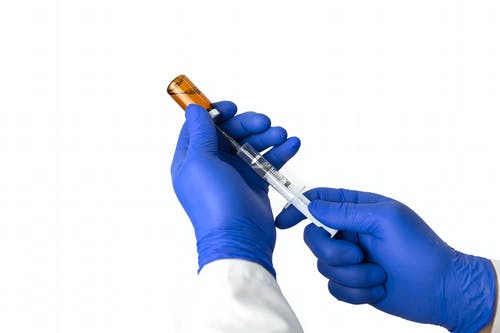Getting stuck by a needle is never something to look forward to, whether it’s for a blood test, donation, or vaccination. However, from schedules for various vaccines and tests, the average healthy person can expect upwards of 165 needle sticks in a lifetime. Even worse, people hospitalized can expect hundreds more, while those with HIV, Diabetes, and other chronic illnesses can expect an infinite number.
For most people, needles are a nuisance they have to put up with every once in a while. But for another small group, the mere sight of blood and needles sends a nervous chill down their spines. The people in this category have trypanophobia.
How many people are afraid of needles?
Trypanophobia is the fear of needles or any form of piercings. The surprisingly common condition is also often characterized by fear of blood. An estimated 25% of adults in the US are affected by this fear of needles, making an additional 16% skip vaccination.
Many of these people who are afraid of needles also tend to avoid doctors hence going for physicals. Evidently, this can lead to more serious problems.
Interestingly, this phobia is not just associated with people who are overly sensitive to pain. It can affect anyone, even some tough individuals. The cause is usually unknown, but it can often be traced to a traumatic experience from a childhood illness. Researchers have also not ruled out the possibility of a genetic component playing a role in trypanophobia, especially in cases where the patient faints after needle sticks.
There are several noticeable characteristics of someone with trypanophobia, including:
- Palpitations.
- Anxiety.
- Fainting (caused by a reflex on the sight of blood that drops the blood pressure.
- Panic attacks, sweats, or nausea.
- Insomnia in anticipation of the needle stick.
Missing important procedures
Being afraid of needles can affect your health when you skip important medical procedures like vaccinations and physical exams. Skipping recommended tests that require needle sticks can also lead to misdiagnosis. A good example is the ongoing mass vaccination process for COVID 19; many people are putting their lives at risk because of transphobia.


